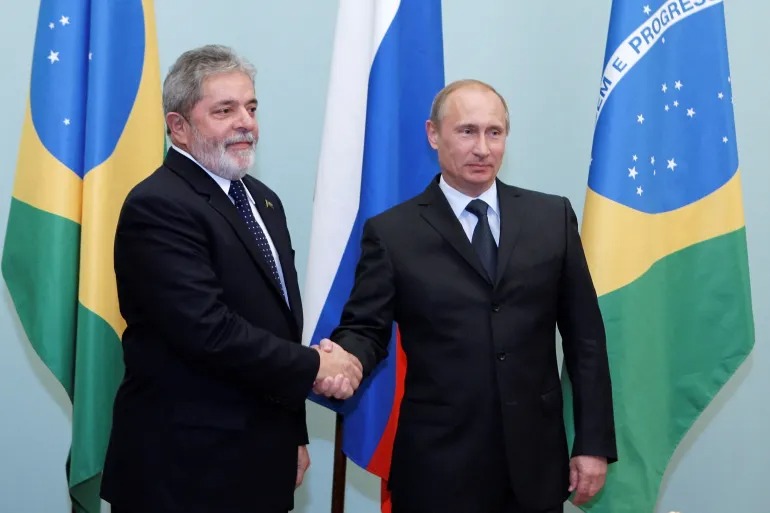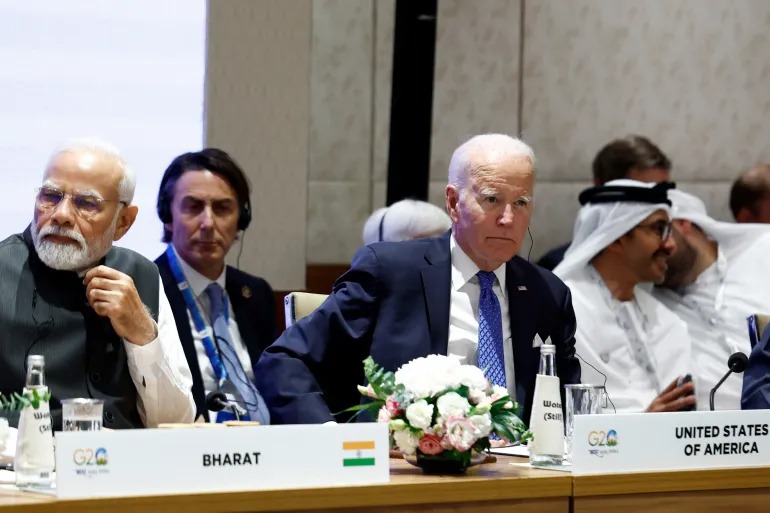In a surprising turn of events at the G20 meeting in Delhi, Brazilian President Luiz Inacio Lula da Silva has made a resolute statement, pledging that Russian leader Vladimir Putin will not face arrest if he chooses to attend the Group of 20 meeting scheduled for Rio de Janeiro next year. This assurance comes in the wake of the International Criminal Court (ICC) issuing an arrest warrant against Putin in March on charges of war crimes related to the alleged illegal deportation of Ukrainian children. Lula’s announcement not only highlights Brazil’s commitment to diplomatic relations but also underscores the complex international dynamics surrounding the ongoing conflict in Ukraine.
Lula’s Pledge to Welcome Putin: Brazilian President Extends Invitations and Assures Safe Stay for Russian Leader
President Lula, speaking to the Firstpost news show during the sidelines of the G20 meeting in Delhi, unequivocally expressed his intention to extend an invitation to Vladimir Putin for the G20 summit in Rio de Janeiro. Furthermore, he assured that, as President of Brazil, Putin would face no risk of arrest during his visit. Lula’s bold statement solidifies Brazil’s commitment to hosting a successful G20 meeting and fostering diplomatic relations with Russia.
Lula also revealed his personal plans to attend a BRICS (Brazil, Russia, India, China, and South Africa) bloc meeting scheduled in Russia before the Rio event, emphasizing the significance of maintaining dialogue and diplomatic channels among the BRICS nations. His proactive stance in building international partnerships showcases Brazil’s commitment to fostering cooperation and peace on the global stage.
The ICC Warrant and Russia’s Response: International Criminal Court’s Arrest Warrant for Putin and Russia’s Denial of War Crimes
The backdrop of this assurance is the ICC’s issuance of an arrest warrant against Vladimir Putin earlier this year. The warrant accused Putin of war crimes related to the alleged illegal deportation of hundreds of Ukrainian children. Russia vehemently denied these allegations, asserting that its forces had not engaged in war crimes and had not forcibly removed Ukrainian children.
This development has added a layer of complexity to international relations, as it raises questions about the authority of international organizations like the ICC and how countries respond to such warrants. President Lula’s assurance to Putin underscores Brazil’s commitment to respecting diplomatic immunity and international norms.
G20’s Surprising Consensus on Ukraine: G20 Nations Avoid Strong Condemnation of Russia in Favor of Broader Economic Focus
On the final day of the G20 meeting in Delhi, the participating nations adopted a consensus declaration that took a measured approach to the ongoing conflict in Ukraine. The declaration notably avoided strong condemnation of Russia and instead emphasized the importance of upholding principles of international law, including territorial integrity, sovereignty, and international humanitarian law.
The consensus declaration reflects the deep divisions within the G20 over the Ukraine conflict, with Western nations initially pushing for a stronger condemnation of Russia in the Leaders’ Declaration. On the other hand, some member states urged a focus on broader economic issues. The declaration underscores the complex diplomatic landscape surrounding the ongoing crisis in Ukraine and the delicate balance required to maintain international cooperation.
In conclusion, President Lula’s commitment to ensuring Vladimir Putin’s safety at the G20 meeting in Rio de Janeiro sends a strong message of diplomatic goodwill amid the backdrop of international tensions. The ICC’s arrest warrant for Putin and the G20’s consensus on Ukraine highlight the intricate diplomatic challenges faced by nations in a rapidly changing global landscape. The international community will continue to closely monitor developments in the lead-up to the G20 meeting in Rio and its potential impact on international relations.
















